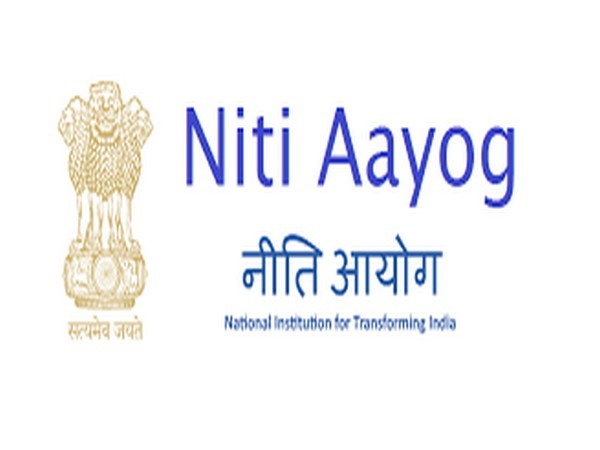NITI Aayog Hosts Workshop to Accelerate Business Reform and Investments
A key theme was the implementation of the Jan Vishwas Act 1.0, which several states are already leveraging to convert minor offences into civil penalties.

- Country:
- India
In a significant step toward bolstering India’s investment climate and reforming its regulatory framework, NITI Aayog convened a high-level Workshop on Ease of Doing Business and Investment Promotion in New Delhi, reaffirming its central role as a knowledge and coordination platform between the Centre and States. The workshop brought together top-level officials from both central ministries and state governments, aiming to streamline policy, harmonize reforms, and foster a business-friendly environment across the country.
The workshop, held under the leadership of Shri Rajiv Gauba, Member, NITI Aayog, and with a Special Address by CEO Shri B.V.R. Subrahmanyam, also witnessed participation from senior officials representing eight States in person, while several others joined virtually. Key institutions including DPIIT, Department of Revenue, Ministry of MSME, and representatives from India’s leading industry bodies such as CII, FICCI, and FISME, were also part of the dialogue.
A Multi-Dimensional Reform Agenda
Deliberations were anchored around seven critical reform pillars, all essential for improving the investment climate and enabling smoother business operations at the sub-national level:
-
Decriminalisation of Business Laws
-
Compliance Burden Reduction and Deregulation
-
Business Reform Action Plan (BRAP) Implementation
-
Development of Industrial Infrastructure
-
Single Window Clearance Systems
-
Financial and Taxation Reforms
-
Investment Promotion Strategies
These themes formed the foundation for peer-to-peer learning, success stories, and practical suggestions that can be adapted across states and union territories.
Decriminalisation and Trust-Based Regulation
A key theme was the implementation of the Jan Vishwas Act 1.0, which several states are already leveraging to convert minor offences into civil penalties. Officials shared how they are eliminating imprisonment clauses, enabling self-certification regimes, and removing redundant license renewals. These measures aim to build a trust-based compliance system while significantly reducing the regulatory footprint for enterprises.
Shri Rajiv Gauba emphasized the need to take these reforms further down to the municipal level, where many regulatory bottlenecks still exist.
“Ease of Doing Business is not a one-time exercise; it is a continuous work-in-progress. Every state must craft its own Jan Vishwas-style reforms to minimize regulatory overreach,” he said.
Alignment with National BRAP and Industry Expectations
Participants discussed aligning state-level efforts with the Business Reform Action Plan (BRAP) prepared by DPIIT to ensure comparability and benchmarking of reforms. Industry representatives urged the government to consider a national-level harmonized framework for decriminalization and compliance simplification.
Suggestions included:
-
A Trusted Taxpayer Programme for both direct and indirect taxes
-
Simplified dispute resolution mechanisms
-
Predictable and consistent regulatory timelines for business lifecycle events
These recommendations reflect the desire for a regulatory system that prioritizes facilitation over enforcement.
Strengthening Industrial Infrastructure and Digitisation
Several States showcased their efforts to create plug-and-play industrial infrastructure, streamline land allotments, and enhance logistics connectivity, especially for Make in India aligned manufacturing zones.
The need for full digitisation of Single Window Clearance Systems was widely recognized, with emphasis on:
-
Integrated interfaces for all departments
-
Predictable turnaround times
-
Real-time status tracking for investors
This digital-first approach is seen as critical to investor confidence and transparency.
Fiscal and Taxation Reforms: A Unified Tax Climate
There was broad consensus on the positive impact of the GST Council’s cooperative spirit, especially in rationalizing tax rates and reducing TDS burdens, helping 90% of small firms transition smoothly into the GST regime. These changes were seen as contributing significantly to a predictable and less litigious business environment.
MSMEs at the Core of Reform Strategy
Addressing the workshop, Shri S.C.L. Das, Secretary, Ministry of MSME, spotlighted the importance of integrating MSMEs more deeply into the reform agenda. He called for:
-
Affordable credit access
-
Skill development support
-
Digitization initiatives
-
Improved market linkages across value chains
He also underscored the need to strengthen institutional engagement between MSMEs and tax, customs, and state government interfaces.
Institutionalizing Investment Promotion
The final session focused on Investment Promotion Strategies, where experts urged States to institutionalize investment promotion as a year-round function rather than an occasional activity.
Best practices included:
-
Creation of dedicated Investment Promotion Agencies (IPAs)
-
Use of CRM tools, chatbots, and analytics platforms to manage investor engagement
-
Emphasis on post-establishment support, such as grievance redressal, policy stability, and inter-departmental coordination
Participants agreed that investor trust is built not just at the point of entry, but through consistent service and policy delivery after investment.
Global Outreach and Domestic Branding
The role of international promotion and branding was also discussed. Stakeholders emphasized collaboration with:
-
Indian diplomatic missions abroad
-
Industry associations
-
Bilateral chambers of commerce
Such outreach can help States attract sector-specific and high-value global investments, especially in high-tech, climate-smart, and export-oriented sectors.
Closing Remarks: The Road Ahead
In his Special Address, CEO Shri B.V.R. Subrahmanyam emphasized the importance of state-level execution, noting that the diversity of Indian States is a strength, offering numerous successful models for others to emulate.
“The path to becoming the world’s most attractive investment destination runs through our States. Reforms must be institutional, streamlined, and consistent,” he said.
He reaffirmed NITI Aayog’s commitment to support reform efforts through benchmarking, capacity-building, and a forthcoming Model FDI Promotion Template, to be developed using the insights gathered during this workshop.
A Renewed Call for Reform-Oriented Federalism
The workshop reinforced that ease of doing business is a shared responsibility—with the Centre, States, and industry each playing vital roles. Through collaborative federalism, evidence-based policy, and a citizen- and investor-centric approach, India is shaping a future-ready business landscape rooted in transparency, speed, and global competitiveness.










